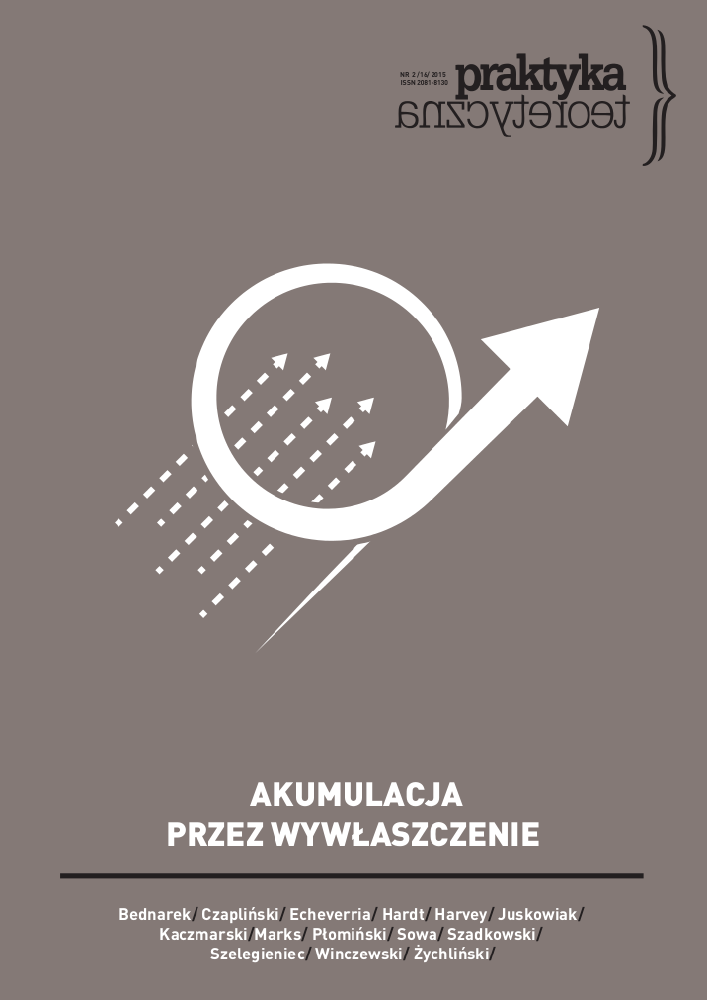Abstract
The gap between Marx’s theoretical writings on political economy (for example, the three volumes of Capital) and his historical writings (such as The Eighteenth Brumaire of Louis Bonaparte and The Civil War in France) arises out of certain limitations that Marx placed upon his political-economic enquiries. These limitations are outlined in the Grundrisse where Marx distinguishes between the universality of the metabolic relation to nature, the generality of the laws of motion of capital, the particularities of distribution and exchange, and the singularities of consumption. What an analysis of the content of Capital shows is that Marx largely confined his efforts to identifying the law-like character of production to the exclusion of all else. While this allowed him to identify certain laws of motion of capital within any form of the capitalist mode of production, it did not and could not constitute a total theory of a capitalist mode of production. A better understanding of what it is that Marx can do for us through his identification of the general laws of motion leads to a far better appreciation of what it is that we have to do for ourselves in order to make Marx’s theoretical findings applicable to particular conjunctural conditions, such as those that have arisen throughout the economic crisis that began in 2007.References
Baran, Paul i Paul Sweezy. 1966. Monopoly Capital: An Essay on the American Economic and Social Order. New York: Monthly Review Press.
Boccara, Paul. 1970. Études sur le capitalisme monopoliste d’État, sa crise et son issue. Paris: Grijalbo.
Burkett, Paul. 1999. Marx and Nature: A Red and Green Perspective. Basingstoke: Palgrave-Macmillan.
Engels, Fryderyk. 1972a. Rozwój socjalizmu od utopii do nauki. Tłum. Antoni Bal. W Marks, Engels, Dzieła. T. 19. Warszawa: Książka i Wiedza.
Engels, Fryderyk. 1972b. Dialektyka przyrody. Tłum. Tadeusz Zabłudowski. W Marks, Engels, Dzieła. T. 20. Warszawa: Książka i Wiedza.
Foster, John Bellamy. 2000. Marx’s Ecology: Materialism and Nature. New York: Monthly Review Press.
Harvey, David. 1973. Social Justice and the City. London: Edward Arnold.
Harvey, David. 1982. The Limits to Capital. First Edition. Oxford: Blackwell.
Harvey, David. 1996. Justice, Nature and the Geography of Diffference. Oxford: Blackwell.
Harvey, David. 2008. Neoliberalizm. Historia katastrofy. Tłum. Jerzy Paweł Listwan. Warszawa: Książka i Prasa.
Harvey, David. 2010. A Companion to Marx’s ‘Capital’. London: Verso.
Harvey. David. 2011. The Enigma of Capital: and the Crises of Capitalism. Oxford: Oxford University Press.
Harvey, David. 2012. Bunt miast. Prawo do miasta i miejska rewolucja. Tłum. „Praktyka Teoretyczna”. Warszawa: Fundacja Bęc Zmiana.
Jay, Martin. 1996. The Dialectical Imagination: A History of the Frankfurt School and the Institute of Social Research, 1923–1950. Berkeley: University of California Press.
Leiss, William. 1994. The Domination of Nature. McGill-Queen’s University Press: Montreal.
Marks, Karol i Fryderyk Engels. 1962. „Manifest Partii Komunistycznej”. W Marks, Engels, Dzieła. T. 4. Warszawa: Książka i Wiedza.
Marks, Karol. 1968a. Kapitał: Krytyka ekonomii politycznej. Księga I: Proces wytwarzania kapitału. Tłum. Paweł Hoffman, Bronisław Minc, Edward Lipiński. W Marks, Engels, Dzieła. T. 23. Warszawa: Książka i Wiedza.
Marks, Karol. 1964. „Osiemnasty Brumaire’a Ludwika Bonaparte”. W Marks, Engels, Dzieła. T. 8. Warszawa: Książka i Wiedza.
Marks, Karol. 1968b. Teorie wartości dodatkowej, t. 1, Tłum. Cz. Grabowski, F. Romaniukowa, W. Sadowski. W Marks, Engels, Dzieła. T. 26. Cz. 1. Warszawa: Książka i Wiedza.
Marks, Karol. 1968c. „Wojna domowa we Francji”. W Marks, Engels, Dzieła. T. 17. Warszawa: Książka i Wiedza.
Marks, Karol. 1977. Kapitał. Krytyka ekonomii politycznej. Księga II: Proces cyrkulacji kapitału. Tłum. Edward Lipiński, Julian Maliniak. W Marks, Engels, Dzieła. T. 24. Warszawa: Książka i Wiedza.
Marks, Karol. 1978. Capital. Volume 2. Tłum. David Fernbach. Harmondsworth: Penguin.
Marks, Karol. 1982. Kapitał: Krytyka ekonomii politycznej. Księga III: Proces produkcji kapitalistycznej jako całość. Tłum. Edward Lipiński, Julian Maliniak. W Marks, Engels, Dzieła. T. 25. Cz. 2. Warszawa: Książka i Wiedza.
Marks, Karol. 1984. Kapitał: Krytyka ekonomii politycznej. Księga III: Proces produkcji kapitalistycznej jako całość. Tłum. Edward Lipiński, Julian Maliniak. W Marks, Engels, Dzieła. T. 25. Cz. 1. Warszawa: Książka i Wiedza.
Marks, Karol. 1986. Zarys krytyki ekonomii politycznej. Tłum. Jan Wyrozembski. Warszawa: Książka i Wiedza.
Negri, Antonio. 1996. Marx Beyond Marx: Lessons on the ‘Grundrisse’. Tłum. Harry Cleaver i in. New York: Autonomedia.
Sayer, Derek. 1987. The Violence of Abstraction: The Analytical Foundations of Historical Materialism. Oxford: Blackwell.
Smith, Neil. 1984. Uneven Development: Nature, Capital and the Production of Space, First Edition. Oxford: Blackwell.
Stalin, Józef. 1949. „O materializmie dialektycznym i historycznym”. W Stalin, Józef. Zagadnienia leninizmu. Warszawa: Książka i Wiedza.
License
“Theoretical Practice” seeks to put into practice the idea of open access to knowledge and broadening the domain of the commons. It serves the development of science, thinking and critical reflection. The journal is published in open-access mode under the CC-BY-NC-SA 4.0 license (detail available here: http://creativecommons.org/licenses/by-nc-sa/4.0/). Articles published in the journal may be freely distributed, stored, printed and utilized for academic and teaching purposes without restrictions.
They should not be, however, used for any commercial purposes or be reconstructed into derivative creations. Access to the journal may not be limited or offered for a fee by any third party.
Prospective authors are obliged to fill in, sign and send back the publishing contract compliant with the CC licencing. [PL.pdf, PL.doc, EN.pdf,EN.doc].
According to this contract, authors grant the journal a non-exclusive right to publish their work under the creative commons license (CC-BY-NC-SA 4.0) without any financial obligation on both sides of the contract.
Before submission authors should make sure that derivative materials they use are not protected by copyright preventing their non-commercial publication. Authors are responsible for any respective copyright violations.
